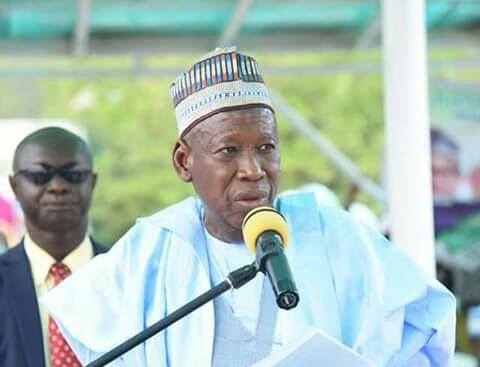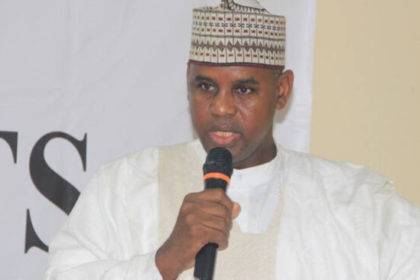By Adeyemi Adekunle
The country, weighed down by the economic fallout of bold reforms, faces a Christmas like no other—one marked by resilience instead of revelry. Amidst this, Abdullahi Ganduje, the National Chairman of the All Progressives Congress (APC), has extended a heartfelt appeal for patience and unity, assuring Nigerians that brighter days lie ahead.
“Change is never easy, but it is necessary,” Ganduje said in a message released through his Chief Press Secretary, Edwin Olofu. His words, measured and empathetic, sought to bridge the widening gap between a government working to rebuild and a populace grappling with the immediate toll of its decisions.
Since his inauguration earlier this year, President Bola Tinubu has introduced two sweeping economic policies: the removal of petrol subsidies and the unification of Nigeria’s exchange rate. These moves, while celebrated by economists as crucial for long-term stability, have thrown millions into a daily battle with inflation.
Prices of food, fuel, and essential goods have soared, leaving many households struggling to celebrate a season traditionally steeped in abundance and generosity.
To critics, these reforms feel like an avalanche—unrelenting and overwhelming. Yet, Ganduje sees them as the scaffolding for a better future. “The discomfort is undeniable, but so is the necessity of these changes,” he remarked. “As a nation, we are beginning to see the early signs of progress. By next Christmas, the economy will be steadier, and our collective sacrifices will bear fruit.”
The optimism was not without evidence. Ganduje pointed to improving national security—a cornerstone of any thriving economy. The scourge of banditry and kidnapping that once cast a long shadow over the nation is now in retreat, he asserted, crediting the administration’s focus on securing lives and livelihoods.
But beyond the policy shifts and political assurances, Ganduje’s message carried a human touch. He urged Nigerians to lean into the essence of the season—community, compassion, and shared strength. “Let us not forget the spirit of Christmas,” he said. “In times of hardship, it is our togetherness, our kindness, and our generosity that sustain us.”
His words came as an invitation: to look beyond the immediate struggles and envision the possibilities that lie ahead. To see hope where despair threatens to linger. To believe in a Nigeria that can rise stronger from the crucible of its challenges.
Critics, however, have not been as hopeful. Many argue that the administration’s reforms have disproportionately burdened the most vulnerable, and the promised palliatives remain insufficient. Civil society groups have called for a more transparent rollout of policies to ensure that the benefits reach all Nigerians.
Ganduje, acknowledging these criticisms, reaffirmed the APC’s commitment to ensuring that the fruits of Tinubu’s reforms are equitably shared. “No Nigerian will be left behind in our journey toward national recovery,” he pledged, urging citizens to trust the process and keep faith alive.
For those navigating the daily grind of inflated prices and dwindling resources, this trust may be hard to muster. Yet, in his appeal, Ganduje struck a chord that resonates deeply with the Nigerian spirit—a spirit that has weathered storms, braved adversity, and risen time and again from the ashes of despair.
This Christmas, as many gather in homes lit by candles instead of electric bulbs, the message of hope feels more urgent than ever. It is a call not just to endure but to embrace the belief that these sacrifices are paving the way for a more prosperous future.
Ganduje’s words are a reminder that hardship, though bitter, can be the soil in which resilience and renewal take root. “Pray for peace, pray for prosperity, and pray for the wisdom of our leaders,” he implored. “This season is not just about celebration but about reflection and unity.”
As Nigeria stands on the precipice of transformation, the path ahead is undeniably steep. But it is also one brimming with potential—of an economy recalibrated for growth, of a nation secured from the scourge of violence, and of a people united by a shared vision of progress.
For now, patience is the currency Nigerians are asked to spend, and unity is the bond they are urged to strengthen. The journey is far from over, but as Ganduje reminded the nation, it is one that promises reward for those who endure.
In a year marked by trials, this Christmas becomes a poignant metaphor for the Nigerian story: a tale of hope that burns bright, even in the face of darkness.




